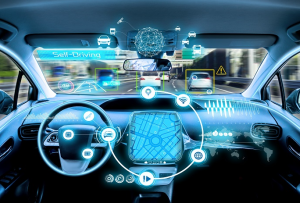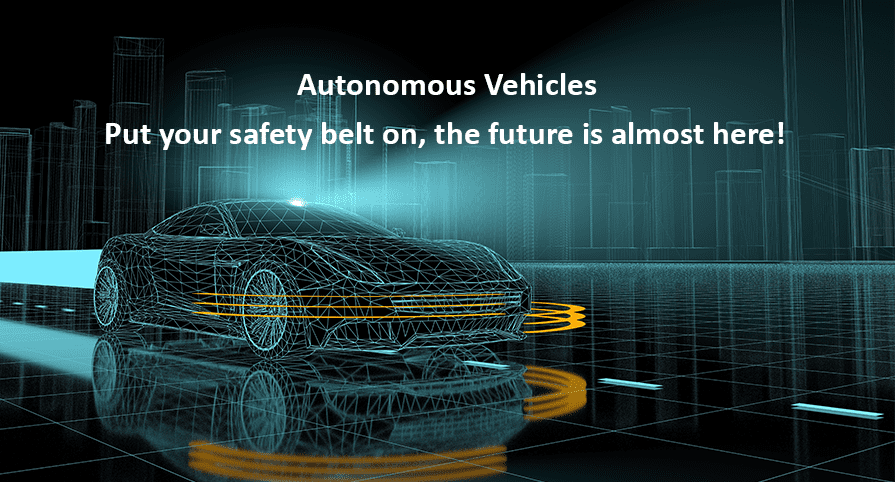In 1872, American George Brayton invented the first commercial liquid-fuelled internal combustion engine. In 1876, Nikolaus Otto, working with Gottlieb Daimler and Wilhelm Maybach, patented the compressed charge, four-cycle engine. In 1879, Karl Benz patented a reliable two-stroke gas engine. Looking today at the advances seen in passenger vehicles, Brayton, Otto and Daimler could never have imagined a time when automotive technology would be this advanced. Within 150 years the motor vehicle would have the ability to “see in the dark”. Cars are starting to be able to drive themselves and even deliver pizza, as was recently demonstrated by Ford and Domino’s! Envisaged as a relatively simple mechanical device created to increase the ease, speed and distance of travel, the car has quickly evolved to become an integral part of our lives.
Technological progress over the last twenty years, powered in part by the increased power of computers has seen huge advancements in safety, efficiency and ease of use. Automotive technology has progressed at an incredible rate. Fully autonomous vehicles are almost here and will transform the way we travel. We are likely to see changes within the next few years that are as dramatic as the difference between a Model T and a modern Porsche 911.
Autonomous or driverless cars will present society with future transport systems that will remove the need for constant human interaction, monitoring and control. Now, if you live in London and want to visit your parents in Cornwall, you will need to drive for a minimum of 5 hours. The route is plagued with traffic issues and presents little interest. A journey like this in a driverless car would allow a family the time to enjoy each other’s company rather than needing to concentrate on driving. There would be time to watch films, play games, interact or even sleep, letting the vehicle and its on-board systems take the strain.

Of course, there are those that enjoy driving, but there is no escaping the fact that roads will become safer. Over 90% of accidents are caused by human error. Introduce a qualified and certified autonomous driving system and the human factor is removed from the equation, allowing an infallible digital system to control the vehicle within defined parameters. In the future, such vehicles will be further enhanced by city networks and sensors, not only will accidents be a rarity, speeding and parking fines will be a thing of the past too. Not to mention the fact that alcohol will no longer present an issue for the driver or other road users.
The need for vehicle ownership may even become redundant. Rather than individuals or families owning vehicles that are only used for relatively short and or inefficient journeys, cars could be in-use and available 24/7. This would make them more economical and lower their environmental impact. Automated driving systems managed by complex software and high-powered computers will potentially also result a significant reduction in energy consumption by optimising driving efficiency. In addition, electric vehicles are lowering reliance upon fossil fuels with renewable energy and battery technology seeing rapid advances. Reliable solar powered cars with a decent range are even on the horizon.
The replacement of people in vehicles by machines has the potential to cause massive workforce realignment. The insurance industry will have to adapt its stance as the driver is removed from the responsibility equation. There is also the cultural impact to consider, similar impacts were seen with the introduction of electronically captured biometrics with people initially perceiving the technology as highly suspicious and not to be trusted. Culturally, another result could be that cars will likely become less of a personal, aspirational commodity and much more of a functional one, a fact that could have sizeable effects on the automotive industry impacting sales figures, turnover and profits.
 But we are getting ahead of ourselves, Standards for Safety are still in development and will no doubt involve development of concepts outlined in ISO 26262 with systems level testing at a level that exceeds the current highest automotive safety integrity level (ASIL D). Safety Criticality is a primary concern here. If autonomous vehicles are proven to be safe, drivers and society will have to learn to trust them. The only way to reach that point and the acceptance of “proven infallibility” is through thorough testing of the product before it reaches the market. Using advanced techniques to demonstrate safety, according to industry best practice will become more necessary than ever. Techniques such as static analysis and dynamic testing, including white box testing, structural code coverage, requirements-based testing, model based testing and regression testing will be an important part of the development toolkits for these technologies.
But we are getting ahead of ourselves, Standards for Safety are still in development and will no doubt involve development of concepts outlined in ISO 26262 with systems level testing at a level that exceeds the current highest automotive safety integrity level (ASIL D). Safety Criticality is a primary concern here. If autonomous vehicles are proven to be safe, drivers and society will have to learn to trust them. The only way to reach that point and the acceptance of “proven infallibility” is through thorough testing of the product before it reaches the market. Using advanced techniques to demonstrate safety, according to industry best practice will become more necessary than ever. Techniques such as static analysis and dynamic testing, including white box testing, structural code coverage, requirements-based testing, model based testing and regression testing will be an important part of the development toolkits for these technologies.
Not that long ago, a future of driverless cars was pure science-fiction rather than the “almost here tech” that we see in 2019. In fact, the introduction of “driverless tech” is happening right now in every new car we see, ABS, Traction Control, Self-Parking, Night Vision, Lane Assist Control and Radar are all essentially the slow introduction of technologies that we will take for granted in the driverless cars of the future!
Driverless vehicles are undoubtedly the future for land-based travel. Safety will be of the utmost importance and the need for ever greater efficiency, driven by environmental concerns may be one of the key drivers.
Before we reach that point, the millions of lines of code required for vehicle autonomy, not to mention the potential for city grids and interaction with Smart Cities, will require immense software testing at the very highest levels of integrity and safety criticality.




